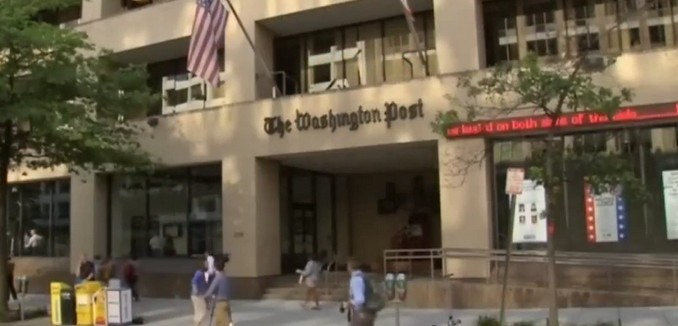President Barack Obama “suspects a bipartisan majority would oppose the deal he is prepared to make” with Iran, a staff editorial asserted today in The Washington Post.
The editorial cited three concerns about the emerging deal identified by “authorities ranging from Henry Kissinger, the country’s most senior former secretary of state, to Sen. Timothy M. Kaine, Virginia’s junior senator”:
●First, a process that began with the goal of eliminating Iran’s potential to produce nuclear weapons has evolved into a plan to tolerate and restrict that capability.
●Second, in the course of the negotiations, the Obama administration has declined to counter increasingly aggressive efforts by Iran to extend its influence across the Middle East and seems ready to concede Tehran a place as a regional power at the expense of Israel and other U.S. allies.
●Finally, the Obama administration is signaling that it will seek to implement any deal it strikes with Iran — including the suspension of sanctions that were originally imposed by Congress — without seeking a vote by either chamber. Instead, an accord that would have far-reaching implications for nuclear proliferation and U.S. national security would be imposed unilaterally by a president with less than two years left in his term.
The editorial emphasized that “it is vital that major shifts [in foreign policy] win the support of Congress and the country,” but that by announcing that the administration intends to bypass Congress, “[i]t’s hard to escape the conclusion that Mr. Obama wishes to avoid congressional review because he suspects a bipartisan majority would oppose the deal he is prepared to make.”
The bipartisan objections to the nuclear deal that is taking shape reflect a national consensus. A poll commissioned by The Israel Project in November found that 69% of Americans would oppose a deal that would allow Iran to keep “its current nuclear capabilities.” The Israel Project publishes The Tower.
In addition to pursuing a course that Congress and the nation are skeptical of, America’s Middle East allies would view the deal with alarm. Citing former Secretary of State Henry Kissinger, the editorial observes that a nuclear-threshold Iran “would very likely prompt other countries in the region, such as Saudi Arabia, Egypt and Turkey, to match Iran’s threshold capability.”
Though the editors of The Washington Post initially supported the Joint Plan of Action signed between Iran and the P5+1 nations in November 2013, in recent months they have been questioning the administration’s approach to the negotiations. In October, observing that Iran had not made any concessions during negotiations, an editorial in the Post urged the West to “hold the line” with Iran against any further concessions. In November, an editorial called on the president to consult more closely with Congress on its nuclear diplomacy with Iran. A month later, an editorial questioned how a regime that detained Post reporter Jason Rezaian in violation of its own laws could be trusted with a nuclear program. A few weeks ago, an editorial called for increased pressure on Iran.
[Photo: Channel 4 News / YouTube ]




